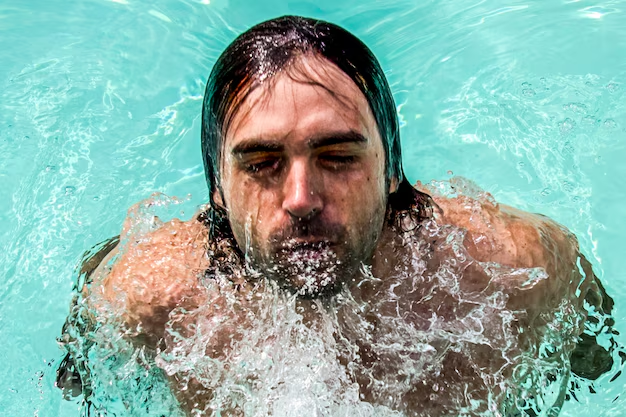Swimming with an Ear Infection: What You Should Know
Few things compare to the bliss of diving into a refreshing pool on a hot day. However, if you're grappling with an ear infection, the prospect of swimming becomes complicated. Can you swim with an ear infection? While the answer varies depending on the type and severity, understanding the intricacies can help you make informed decisions before you take the plunge.
Understanding Ear Infections
What Are Ear Infections?
Ear infections, or otitis, are common conditions that occur when germs cause inflammation and fluid build-up in the ear. They are broadly classified into two types:
Outer Ear Infections (Otitis Externa): Commonly known as "swimmer's ear," this infection affects the ear canal's outer portion, often caused by water remaining in the ears, creating a moist environment for bacteria.
Middle Ear Infections (Otitis Media): This type affects the area behind the eardrum and can sometimes result from colds or respiratory infections spreading to the ears.
Symptoms to Watch
Recognizing the symptoms is the first step in addressing an ear infection. Some common signs include:
- Ear pain or discomfort
- Muffled hearing or hearing loss
- Feeling of fullness in the ear
- Fluid drainage
- Itching in the ear canal
- Fever, especially in young children
Note: While these symptoms provide a guideline, consulting a healthcare provider for accurate diagnosis is important.
Risks of Swimming with an Ear Infection
Potential Complications
Swimming with an ear infection can exacerbate the problem, leading to:
Increased Pain and Discomfort: Water exposure, especially chlorinated pool water, can irritate infected ears, heightening pain.
Extended Healing Time: Introducing bacteria-laden water to an already infected ear may prolong recovery.
Severe Infections: Swimming, particularly in untreated or contaminated water, can lead to more significant infections or complications like a ruptured eardrum.
Impact on Different Types of Ear Infections
Outer Ear Infections: Particularly aggravated by swimming due to direct exposure to water, making them worse.
Middle Ear Infections: Less affected by external water, but they can still worsen with pressure changes during swimming, especially diving.
Tips for Safe Swimming
If swimming can't be avoided, and after consulting with a healthcare provider, consider these precautions:
Ear Plugs: Use swimming earplugs to prevent water ingress into the ear canal. Custom-fitted plugs offer the best protection.
Dry Ears Thoroughly: After swimming, dry ears with a soft towel and tilt your head to help drain any remaining water. You can also use a hairdryer on a low setting (held at a safe distance) to evaporate moisture.
Limit Time in Water: Spend minimal time in the water and avoid swimming in untreated or natural bodies of water, which can be harsher to infected ears.
Monitor Symptoms: If you experience increased pain or changes in hearing, leave the water immediately and consult a healthcare provider.
Alternative Water Activities
Water lovers can explore these alternatives that minimize the risk of worsening ear infections:
Water Aerobics: Engage in water exercises or aerobics while keeping your head above water to avoid ear exposure.
Wading Pools: Spend time in shallow wading pools where immersion isn't required.
Beach Outings: Enjoy the beach by staying on the shore, building sandcastles, or exploring tide pools.
These activities offer water enjoyment without the risks associated with full immersion.
When to Resume Swimming
Deciding when it's safe to return to swimming depends on the severity of the infection and symptoms. Typical guidelines highlight:
Complete Symptom Resolution: Wait until all symptoms, such as pain and drainage, have resolved.
Medical Clearance: If in doubt, consulting a healthcare provider ensures your ear is sufficiently healed.
Patience is key—while it may be tempting to resume swimming, giving your ears the time they need to heal will help prevent further issues.
Prevention Tips
To avoid future infections and enjoy swimming without concern, consider these preventive measures:
Proper Ear Hygiene
Clean Ears Safely: Avoid inserting objects into the ear. Use a clean towel or ear cleanser approved by healthcare professionals.
Keep Ears Dry: Dry your ears thoroughly after swimming or bathing.
Regular Check-Ups
Routine Appointments: Regular health check-ups can catch early signs of ear infections before they become serious.
Allergy Management: For those prone to allergies that can lead to ear infections, proactive management with medication or lifestyle adjustments may help.
Environmental Considerations
Assess Water Quality: Choose clean pools and avoid swimming in high-bacteria environments like lakes and rivers unless necessary.
Shower Pre and Post-Swim: A quick rinse before and after swimming can reduce the bacteria on your skin and potential contaminants entering your ears.
Conclusion: Prioritize Ear Health
Ultimately, ear infections require a careful balance between the joys of swimming and health considerations. When in doubt, prioritize your ear health. Engaging in safer alternatives and taking adequate steps to protect your ears ensures you can enjoy aquatic activities without compromising your well-being. Always consult with healthcare professionals regarding concerns or symptoms persisting beyond basic home management.
Quick Reference Summary
Here’s a concise snapshot of key points to remember:
- Symptoms: Ear pain, hearing changes, fluid drainage.
- Risks: Increased pain, prolonged healing, severe infections.
- Precautions: Use ear plugs, dry ears, monitor symptoms.
- Alternatives: Water aerobics, wading pools, beach outings.
- Resuming Swim: Wait until symptom-free and cleared by a doctor.
- Prevention: Maintain ear hygiene, frequent check-ups, assess water quality.
🌊 Enjoy Water Wisely: Keep ears healthy while enjoying aquatic fun! 🏊♂️

Related Articles
- Are Ear Infections Contagious
- Can Adults Get Ear Infections
- Can Amoxicillin Treat Ear Infections
- Can An Ear Infection Cause a Sore Throat
- Can An Ear Infection Cause Diarrhea
- Can An Ear Infection Cause Head Pain
- Can An Ear Infection Cause Jaw Pain
- Can An Ear Infection Cause Teeth To Hurt
- Can An Ear Infection Cause Vomiting
- Can An Ear Infection Heal On Its Own
